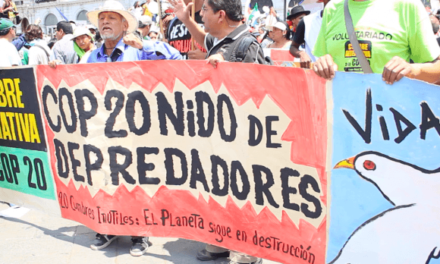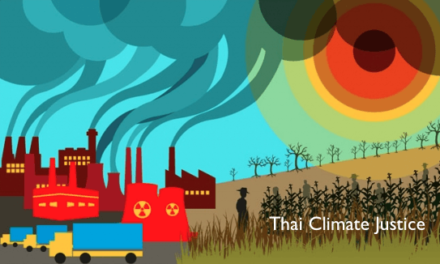By Diana Nelson Jones, Pittsburgh Post-Gazette
First published on September 20, 2009 at 12:00 am post-gazette.com/localnews.
“‘The ultimate solution to climate change is to move away from capitalism,'” said Walden Bello, a journalist, congressional representative and sociology professor in the Philippines.”
With delicate enunciation and an urgent message, Anna Pinto brought sections of a scattered crowd to its feet on the first day of the People’s Summit yesterday.
The daylong gathering drew about 500 people to the 20th Century Club in Oakland, among them Ms. Pinto and an international cast of activists. They said they aim to challenge world leaders who will meet here Thursday and Friday for the Group of 20 Summit to make economic decisions that benefit all people, not just the rich and powerful.
“The way we live has to change, and that is true for people who have hip-deep water in their homes six months of the year” due to flooding “and those of us who live in relative comfort,” said Ms. Pinto, an activist for environmental, women’s and children’s causes in India.
“Very soon, it will not be possible [to change the course]. Worst-case scenarios are already happening,” she said, adding that residents of numerous provinces in India already are involved in armed conflicts with their governments over access to land and food.
A three-day series of speeches, workshops, discussions and performances, the People’s Summit brings together people who support such causes as climate change, health care reform, women’s rights, green jobs, the humanitarian crisis in Darfur, the debt crisis in impoverished countries, immigration reform, labor rights, poverty, racism and the antiwar movement.
Monday’s session moves to the New Hazlett Theater in Allegheny Center on the North Side. Tuesday’s session again will be in the 20th Century Club, 4201 Bigelow Blvd.
State Sen. Jim Ferlo kicked off yesterday’s proceedings with a call for “peaceful speech and peaceful protest” this week. “Protest has been demonized in recent weeks by the media; we must not demonize protest.”
This gathering, too, was protest but in an auditorium with a stage for speakers and seats filled with soft-shoed grandmas, men in Dockers slacks and tattooed youths with bandana-wrapped heads.
Paul LeBlanc, an organizer of the People’s Summit, said its “vision statement” “is, basically, liberty and justice for all.”
The basic American credo? “Yes, and we want our public officials, fellow citizens and the G-20 to hear that voice,” he said. That same voice struggled to change the world in the past, he said, “from slavery to civil rights and women’s rights.”
In an appearance on video, writer and historian Howard Zinn said that voice should be heard globally to counter what he described as destructive decisions of an international cabal of economic decision-makers.
Mr. Zinn, author of “A People’s History of the United States,” urged people to reject governments and leaders who fail to consider the needs of all people. He cited the Whiskey Rebellion of 1794 — the result of small distillers being taxed out of proportion to large ones — and other uprisings of people who sought to save land and livelihoods through early American history. “These people did not wait for government to act. They did not send a delegate to lobby.”
Although many in Pittsburgh are apprehensive about the potential for protests during the G-20 to turn unruly or even violent, Mr. LeBlanc said of all the protest organizers he knows, “none is planning to throw feces or break windows.
“If any of that happens, it will be a disservice to what we are all committed to,” he said. “Any violence that takes place will undermine the message.”
The proceedings yesterday had a decidedly anticapitalist bent, reflecting the views of participants who view capitalism as the combustion engine for greed and unequal distribution of necessities in the world.
“The ultimate solution to climate change is to move away from capitalism,” said Walden Bello, a journalist, congressional representative and sociology professor in the Philippines. Centralized capitalism will never result in decisions made for the greater good, he said.
Yesterday’s summit managed to bridge a diverse population, said Craig Stevens, who has worked for fair housing for many years and helped to plan the gathering.
“This crowd is not the usual set of activists,” he said. “I think we’re crossing some boundaries by bringing in students and people new to causes, and we’re hoping to inspire them.”
Diana Nelson Jones can be reached at [email protected] or 412-263-1626. Visit her Weblog “City Walkabout” at post-gazette.com/localnews.
First published on September 20, 2009 at 12:00 am








